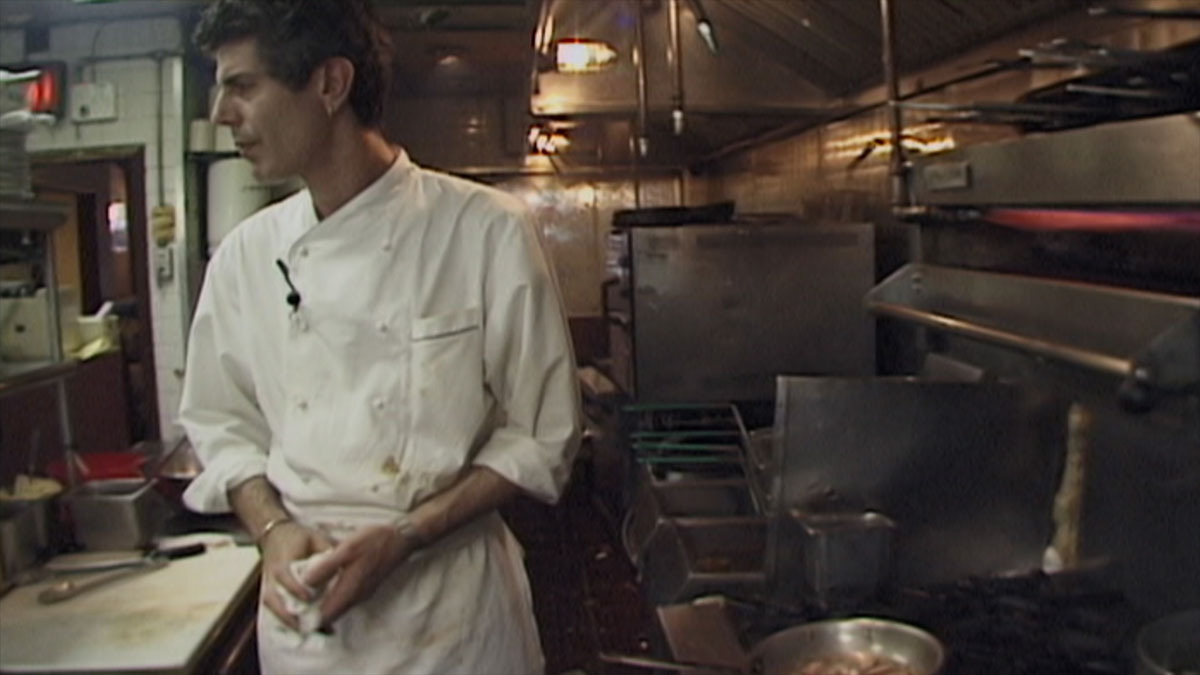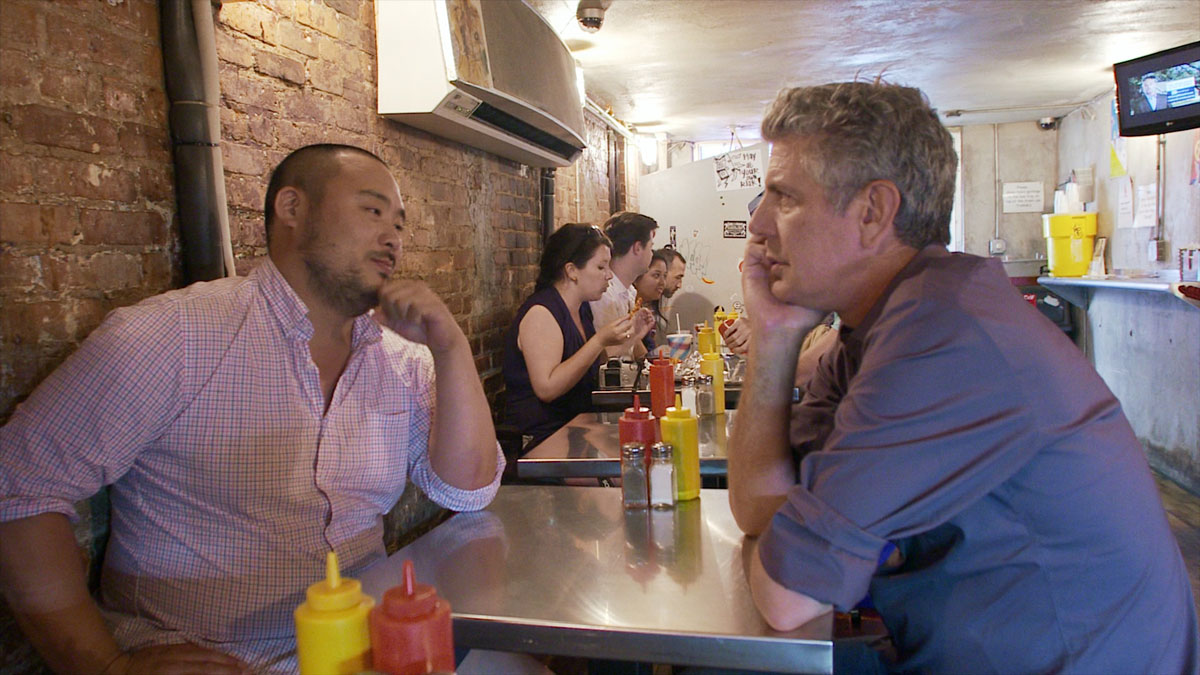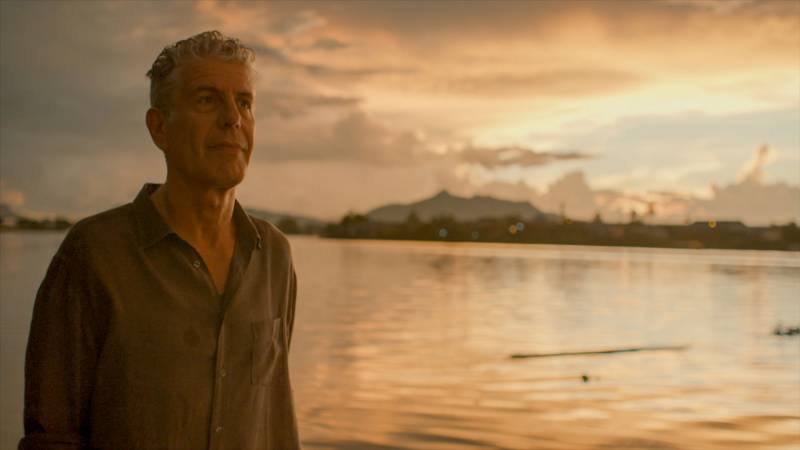Anthony Bourdain was an accidental star, if we believe Morgan Neville’s scattershot, superficial and, eventually, lugubrious documentary Roadrunner: A Film about Anthony Bourdain. A drug user who studied and graduated from line cook to chef, Bourdain was signed by a literary agent based on an off-the-cuff Tokyo travelogue he emailed to a friend. When Kitchen Confidential became a surprise bestseller in 2000, a couple of newlywed producers enlisted its author for a food/travel show.
Bourdain was in his mid-40s, long-married to high school girlfriend Nancy Putkoski and entrenched in the high-pressure, low-margin, long-hours lifestyle of the Manhattan restaurant world. The implications and complications of massive mid-life success strike me as a rich subject—and a natural one for the prolific director of klieg-light subjects like 20 Feet From Stardom and Won’t You Be My Neighbor?, about TV’s Fred Rogers—but Neville leapfrogs from Bourdain’s anonymity to his celebrity, glossing over the transition and the transformation. (Putkoski’s absence from the film suggests she chose not to participate all these years after their 2005 divorce, but her perspective is greatly missed.)

Bourdain wrote more books and articles, but he achieved household-name status from his various television series. An aggressively gregarious and winsomely introspective New Yorker, his Everyman quality and gravelly honesty made him a beloved, not just popular, TV character. When he died by suicide in 2016 in France, where he was shooting an episode of the Emmy Award-winning CNN series, Anthony Bourdain: Parts Unknown, he shocked his audience and stunned his friends.
Roadrunner presents itself as a search for a seeker, but it isn’t interested in the power of success or the foibles of fame. Late in the proceedings it becomes about the elusiveness of happiness, but by then the film wears on even the most sympathetic viewer’s last nerve. The more time we spend with Bourdain, you see, the less unique, substantial and consequential he becomes. Like most stars who shine and flicker on our screens, whatever was compelling about him made its way into, and was maximized or exploited by, his snappily shot and edited vehicles. There’s nothing else to mine.

Robbie Robertson of The Band acknowledged the toll the road takes in The Last Waltz (1978), and perhaps the wear and tear, in cahoots with his latent self-destructiveness, burned Bourdain out. Still, a talented filmmaker could frame Bourdain’s charismatic, adrenaline-fueled, camera-saturated career as a touching and instructive case study of the potholes and pitfalls of reconciling one’s public life with one’s private life. With millions of people cultivating and tending their personas on social media, that’s no longer just the concern of A-list stars.


